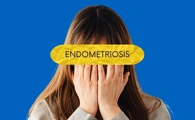

A woman’s body has a fixed, finite number of eggs. From birth onward, she goes through different stages of fertility, using up her egg supply continuously, so that at the start of the fertile stage (puberty), both the quantity and quality of eggs are higher.
From around age 35, ovarian reserve begins to decline, with fewer and lower-quality eggs — a process that becomes very noticeable after age 40 until menopause.
This natural process marks the end of a woman’s reproductive capacity, but when it happens early it raises particular questions and concerns, especially about the possibility of becoming pregnant.
What Is Menopause?
Menopause is defined as the period in which menstruation has been absent for 12 months or more.
Theoretically, from that point on the ovary no longer ovulates, making natural conception impossible. Hormonally, the ovary is also responsible for producing estrogen and progesterone, which regulate the menstrual cycle.
In this group of patients, a comprehensive reproductive evaluation should be performed, assessing ovarian reserve via ultrasound and hormone tests. It should not be confused with primary ovarian insufficiency.
Premature Menopause: Understanding the Phenomenon
Menopause usually occurs between ages 45 and 55. However, some women experience menopause earlier, which is known as premature menopause.
This evaluation is done using two markers:
- Antral follicle count of the ovary (the reserve eggs with which a woman can become pregnant). Normal is between 6–12.
- Anti-Müllerian hormone (AMH) levels, a blood marker of ovarian reserve. Normal is between 1 and 3 ng/ml.
Premature menopause does not necessarily mean a complete loss of the ability to conceive, although the chances are significantly reduced. Before menopause, women go through a phase known as perimenopause, during which ovulation and menstruation may become irregular.
During this stage, pregnancy is still possible, although the likelihood is lower.
Symptoms of Premature Menopause
Premature menopause, like menopause in general, is associated with a range of symptoms that can affect a woman’s quality of life. These symptoms vary in intensity and duration from one woman to another. Common symptoms include:
- Menstrual irregularities: Changes in cycle length or flow are one of the clearest signs of premature menopause.
- Hot flashes: Sudden episodes of intense heat affecting the upper body, face and neck, often accompanied by sweating and anxiety.
- Genitourinary symptoms: Vaginal dryness, irritation and reduced lubrication, which can cause discomfort during sexual intercourse and increase the risk of urinary tract infections.
- Mood changes: Hormonal fluctuations can lead to irritability, anxiety or depression.
- Sleep problems: Hormonal changes may contribute to insomnia or nighttime awakenings.
- Weight changes: Some women experience weight gain or redistribution during premature menopause.
- Cognitive issues: Some women report difficulties with concentration and memory during premature menopause.
It’s important to note that these symptoms can vary and not all women will experience them.
How to Get Pregnant After a Diagnosis of Premature Menopause
Normally, in patients with premature menopause, the above markers are very low, so to achieve pregnancy they may resort to assisted reproduction techniques such as in vitro fertilization (IVF) with egg donation.
For this type of treatment, eggs will be obtained from a woman with the same physical characteristics as the recipient — that is, between 18 and 35 years old, and with health and genetic screening strictly within normal limits.
The fertilization of the oocytes will be carried out with the partner’s sperm or donor sperm, depending on the case. The resulting embryos will preferably be transferred on day 5 of development, after the recipient’s uterus has been properly prepared.
The pregnancy rates achieved through this treatment are high.
Book a free consultationDo you have any questions or need more information?
At Fertility Madrid, we specialise in treatments such as egg donation, in vitro fertilisation and artificial insemination, among others.
Please do not hesitate to contact our professionals at our fertility clinic and they will answer all your questions without obligation.

Óscar Oviedo
Director Médico




